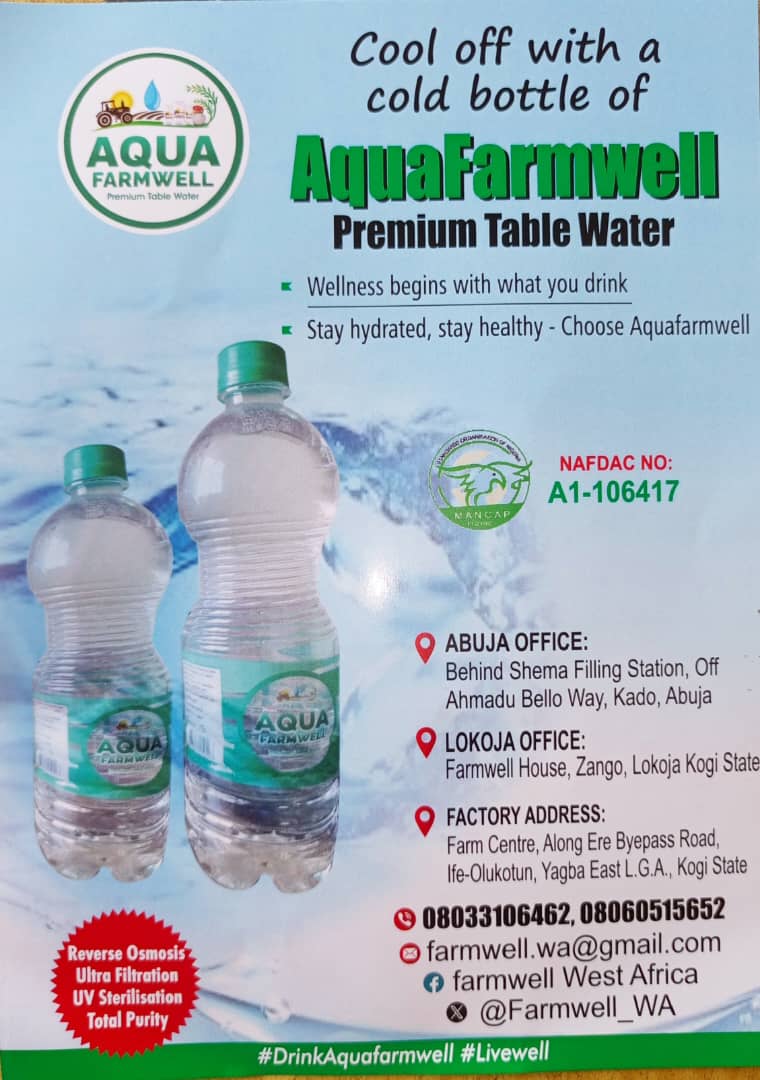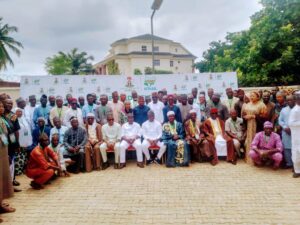

The Federal Government of Nigeria, through the Agro-Climatic Resilience in Semi-Arid Landscapes (ACReSAL) Project, has launched a stakeholders’ engagement for the development of eleven strategic catchment management plans (SCMP).
 Speaking at the meeting on Friday in Lokoja, the National Project Coordinator of ACReSAL, Mr Abdulhamid Umar, said the engagement is for the development of Sarkin-Powa-Kaduna, Okwa-Mada, Gurara-Gbako, Lokoja-Niger, and Aloma-Ebonyi catchments.
Speaking at the meeting on Friday in Lokoja, the National Project Coordinator of ACReSAL, Mr Abdulhamid Umar, said the engagement is for the development of Sarkin-Powa-Kaduna, Okwa-Mada, Gurara-Gbako, Lokoja-Niger, and Aloma-Ebonyi catchments.
According to him, this initiative aims to promote sustainable development, restore degraded lands, and strengthen the resilience of millions of people across northern Nigeria.
He said the stakeholders’ engagement, brought together strategic stakeholders from 10 ACReSAL states, including Kogi, Kaduna, Niger, Katsina, Plateau, Benue, Bauchi, Kano, Nasarawa, and FCT.
Umar, represented by Engr. Shettima Adams, said it aimed to derive a shared vision for an ideal riparian catchment that will build and forestall peace in the catchments.
“The engagement will also consider the opportunities and challenges in the catchments, which will form part of the catchment management plan.
“Catchment management plans are critical for sustainable development, as they provide a framework for managing natural resources, mitigating environmental challenges, and promoting social and economic development.
“The plans will be segregated into short, medium, and long-term plans, ensuring that the ACReSAL Project achieves its objectives of restoring one million hectares of degraded land and impacting 3.4 million direct beneficiaries,” Umar said.
He stressed that the ACReSAL Project was s designed to promote long-term transformation, restore dignity to drylands, rebalance ecosystems, and strengthen the resilience of millions of people.
He added that the project would also ensure that women and girl-child benefit from the project and are integrated fully into society.
“With the guidance of the World Bank and the support of the Federal Government of Nigeria, the ACReSAL project is poised to make a significant impact in the lives of millions of Nigerians,” he said.
Umar urged stakeholders to make meaningful contributions to the document and ensure that their concerns are integrated into the plan.
He also expressed gratitude to the World Bank and the Federal Government of Nigeria for their support and guidance in implementing the ACReSAL Project.
“With the stakeholders’ engagement, Nigeria is one step closer to achieving sustainable development and environmental sustainability,” Umar said.
The Kogi Commissioner for Environment and Chairman State Steering committee, Mr Olusegun Joseph, praised the selection of Lokoja for the ACReSAL stakeholders’ engagement.
Joseph, who declared the engagement open on behalf of Gov. Ahmed Ododo, reaffirmed the governor’s commitment to supporting the project.
He described the ACReSAL as a transformative initiative to tackle environmental challenges and climate vulnerability.
The commissioner urged stakeholders to share practical knowledge and corporate solutions to address environmental issues.
He emphasised the importance of sustainable environmental management and climate resilience.
Joseph commended Governor Ododo’s vision and commitment to the environmental sector and ACReSAL project.
Earlier, Kogi State Project Coordinator, Mrs Ladi Jato, emphasised the shared commitment to environmental restoration and sustainable resource management.
She highlighted the project’s achievements in Kogi including restoring 11,064 hectares of degraded land through gully remediation works.
“Increasing water storage capacity by 800 cubic meters through water harvesting initiatives
“Enhancing agricultural productivity and livelihoods through dry season farming support, and restoring over 3,000 hectares through agroforestry and tree-planting activities,” she said.
Jato expressed gratitude to the World Bank and FPMU teams for their support and commitment to the ACReSAL project, aiming to restore and safeguard the ecosystem for present and future generations.
“The Maigari of Lokoja, Alh. Ibrahim Gambo, represented the Rogan of Eggan, Alh. Mohammed Alhassan, pledged the traditional institution’s support for the project’s implementation.
Other stakeholders present at the meeting include Kogi Commissioners for Agriculture and Water Resources, project coordinators and traditional rulers from the 10 states.
